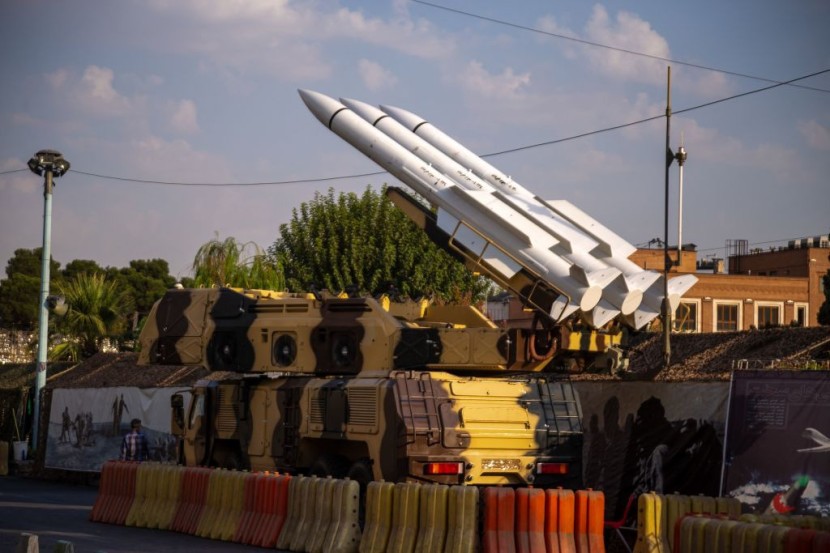The Western powers involved in the 2015 nuclear agreement with Iran have lodged serious accusations against Tehran.
They claim that Iran has been engaging in the development and testing of ballistic missiles, transferring hundreds of drones to Russia, and enriching uranium to an unprecedented 60% level. These actions are in direct violation of a UN resolution endorsing the deal, as per The Independent.
The Unraveling of the Iran Nuclear Agreement

The accusations were made by Britain, France, and Germany at a semi-annual meeting of the Security Council, which was focused on the implementation of the 2015 nuclear agreement. The United States, which withdrew from the agreement in 2018, strongly supported the claims made by the Western powers.
The Joint Comprehensive Plan of Action (JCPOA), as the agreement is known, aimed to prevent Iran from developing nuclear weapons. In exchange for limiting uranium enrichment to peaceful levels, economic sanctions against Iran were lifted.
While these accusations have been met with denial by Iran and its ally Russia, tensions continue to rise. Iran's UN Ambassador Amir Iravani and Russia's UN Ambassador Vassily Nebenzia both blamed the United States' withdrawal from the JCPOA, as well as Western sanctions and an alleged anti-Iran stance, for the current standoff.
Iravani asserted that Iran has the right to enrich uranium for peaceful purposes under the Nuclear Nonproliferation Treaty, while Nebenzia rejected evidence suggesting the use of Iranian drones in Ukraine.
Former President Donald Trump, upon unilaterally withdrawing from the accord in 2018, had promised to negotiate a stronger deal. However, these negotiations never materialized.
Subsequently, Iran began to break the terms of the agreement, with its recent 60% enrichment nearing weapons-grade levels, according to the UN nuclear watchdog, the International Atomic Energy Agency. Formal talks to find a roadmap to restart the JCPOA collapsed in August 2022, leaving the future of the agreement uncertain.
Amidst these developments, UN political chief Rosemary DiCarlo emphasized that the UN Secretary-General Antonio Guterres still considers the JCPOA to be the best available option in ensuring the peaceful use of Iran's nuclear program. DiCarlo, along with the three European countries involved in the agreement, called on Iran to reverse its course, according to Voice of America.
Read Also : WHO Develops LGBTQ Health Guideline-Here's What Trans, Other Gender Diverse People Should Know
Iran's Enriched Uranium Surge Sparks Global Concerns
They cited a joint statement from the International Atomic Energy Agency, which revealed that Iran's stockpiles of enriched uranium now exceed the JCPOA limit by 22 times. The European countries firmly stated that there is no credible civilian justification for Iran's nuclear program and expressed concerns about its trajectory towards weapons-related capabilities.
In response, the European nations and US Minister Counselor John Kelley emphasized their commitment to preventing Iran from developing nuclear weapons by all means necessary.
Kelley urged Iran to take actions to build international confidence, de-escalate tensions, and avoid further nuclear provocations that pose serious risks of proliferation. He highlighted that the United States remains fully committed to resolving the international community's concerns through diplomatic means. However, Kelley expressed concerns that the actions of Iran suggest that this goal is not their priority.
Ambassador Iravani from Iran reiterated their persistence in working towards the revival of the JCPOA and being prepared to fully implement the agreement once it is revived. However, he stressed that the revival of the agreement requires genuine political attentiveness and the full implementation of obligations by the US and all other parties. Ambassador Nebenzia of Russia firmly stated that there is no alternative to the JCPOA.
As tensions escalate and the accusations continue to fly, the future of the nuclear deal and discussions around it remain uncertain. The situation warrants careful monitoring as the international community seeks to navigate a delicate path towards a peaceful resolution, Business Standard reported.
© 2026 HNGN, All rights reserved. Do not reproduce without permission.








